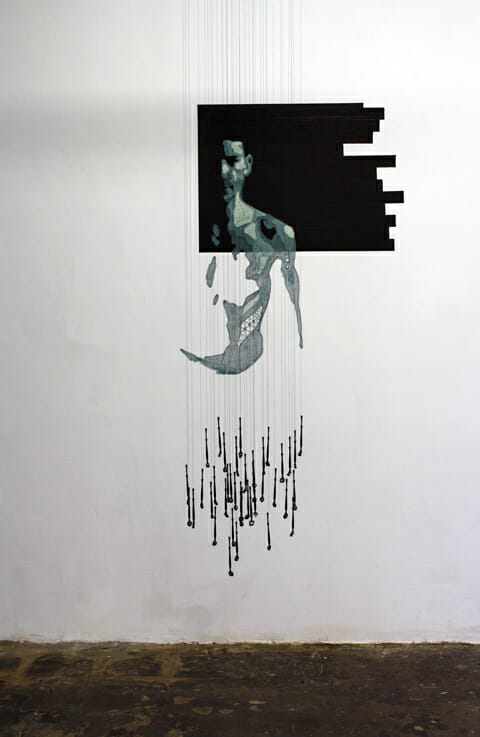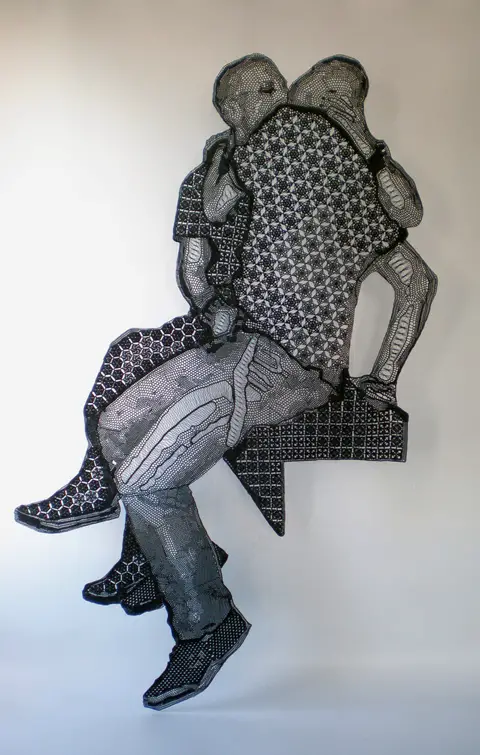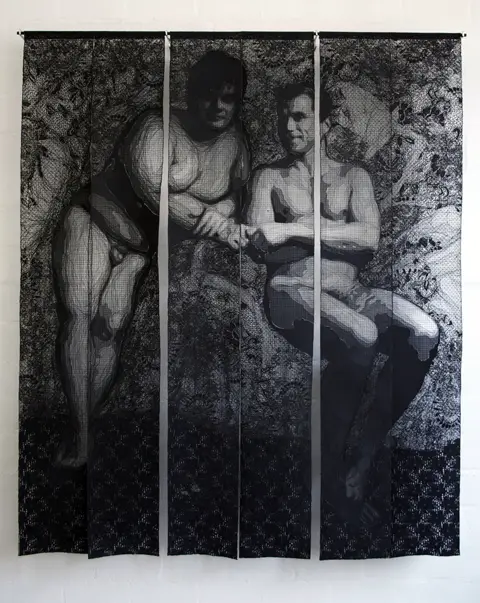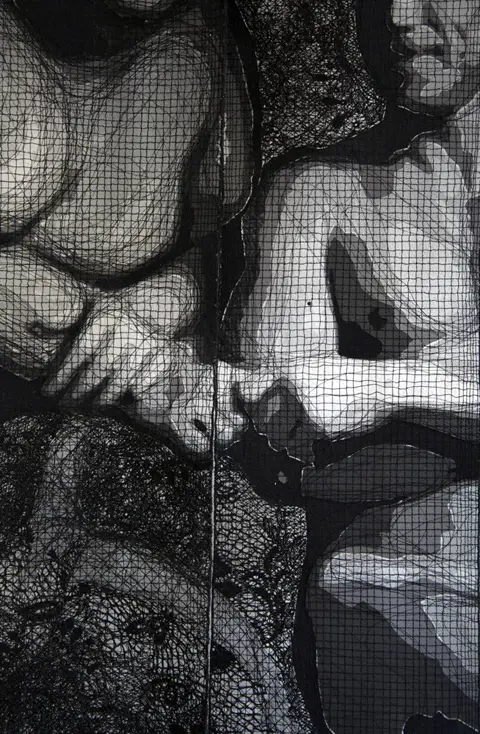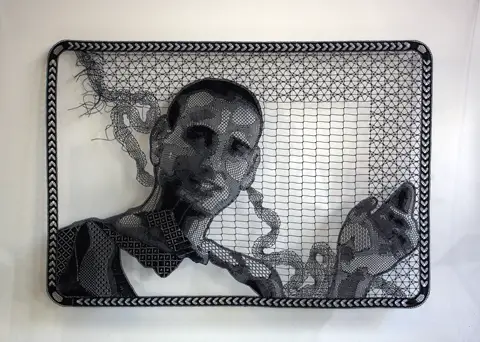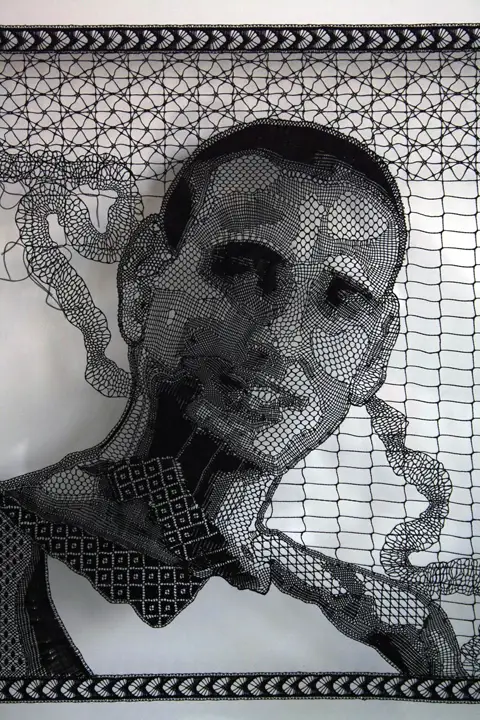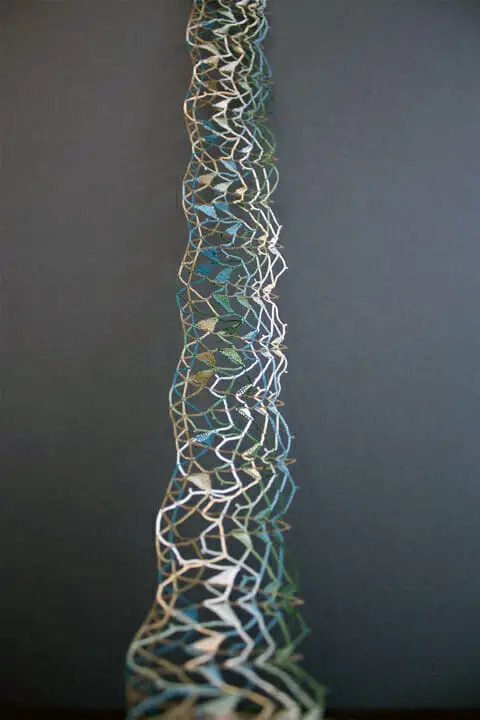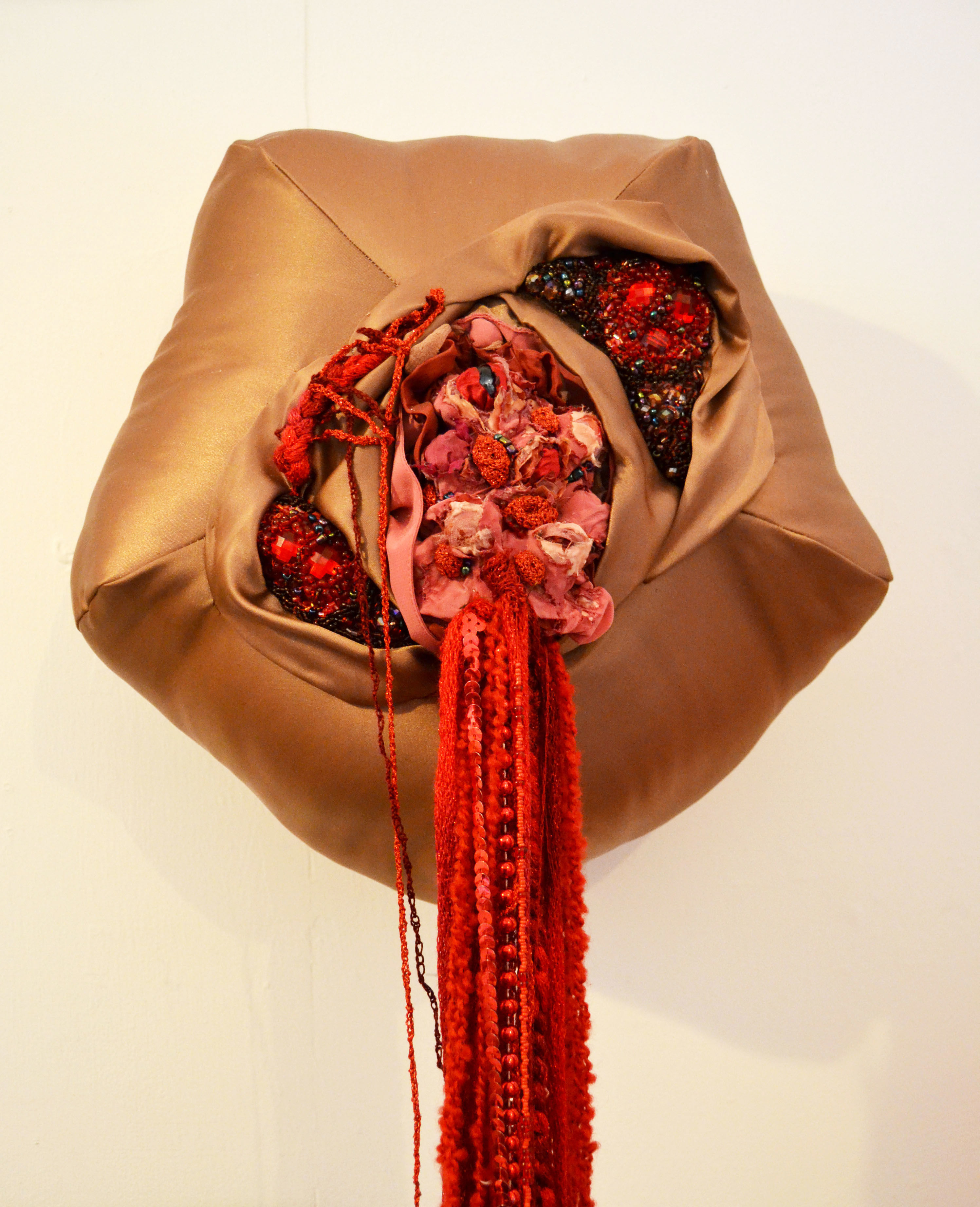Pierre Fouche is a lace artist from Cape Town, South Africa. His work is astonishing.
Fouche (b.1977) completed a Masters degree in Fine Art (cum laude) at Stellenbosch University in 2006. His production spans a number of distinctive media and approaches, including traditional craft techniques, recontextualised found objects, performances and interventions. In 2007 he was awarded one of South Africa’s most prestigious art prizes: the Absa L’Atelier award. He is represented by Whatiftheworld gallery in Cape Town where he will present his third solo exhibition “These Waves” in September 2012.
“Fred and Denis” is a portrait of the most beautiful gay couple in the world. I met the boys in Paris and have been wanting to do their portrait for a long time before I finally got the courage to ask them. I intended to beg a reconsideration of generally accepted ideas of physical beauty through a presentation of two male nudes; one approximating the contemporary ‘body beautiful’ while the other’s generous physique is posed in a manner reminding of the languid female nude in art history. It was made by cutting lace fabric, chiffon and tulle into shapes and connecting them with a sewing machine stitched ‘grid’.
Aiden’s Metamorphosis is a portrait of author and porn actor Aiden Shaw – inspired by his tweet describing a photograph of himself as a much younger man as someone to either hug, or violate, or both… I was drawn to the tenderness and violence of the encounter with that previous version of himself. He was very kind in giving me permission to make this work.
““Guy Nardy” is a commissioned portrait of a friend’s holiday romance from about 20 years ago. (again a photographic encounter with a much younger self as other)..
“Armed with limited skill (having only made a few practice bookmarks and ground fillings) I set out to create a figurative lace panel. I soon realized that my skill-base was not strong enough and that I was overly ambitious – I had to redo many elements often setting production back by a few months. My dedicated study of Milanese and Honiton techniques eventually eased the process. For me the piece is a history of my learning: parts made earlier are visibly inferior to later parts.
“My latest bobbin lace-piece is a fairly traditional lace edging – I drew inspiration for the pattern from the shape of the teeth of the frilled shark: a mysterious deep-sea creature with distinctive serrated teeth. I am currently also encoding a text into the lace strip in morse code since my variation on the traditional Cluny Leaf-stitch can be worked as a braided outline or as a solid woven triangle.
“The latest lace piece is a bit more fanciful: the text that I’m coding into the lace edging is a queering of “George Peter’s Rock” by Crosbie Garstin (1922) and the (6 meters long)-“snippet” will eventually read:
“…’Tis a pale young man I keep tryst with
He slips quietly out of the mist with
never a sound, but the water drips
and his cold, cold lips I’m kissed with.
His foam-white arms go over and round me,
and his green hair binds me as it bound me
on that first night he rose from the deep,
lulled me to sleep,
and drowned me”
Pierre’s work is magnificent. It gives me the same thrill about lace as I got when I first saw Alicia Ross’ work. It renders me speechless.
Are you at the Cutting (& Stitching) Edge? Do you know of an artist that we should feature? Get in touch!
[contact-form-7 id=”90517″ title=”Artist Contact”]

